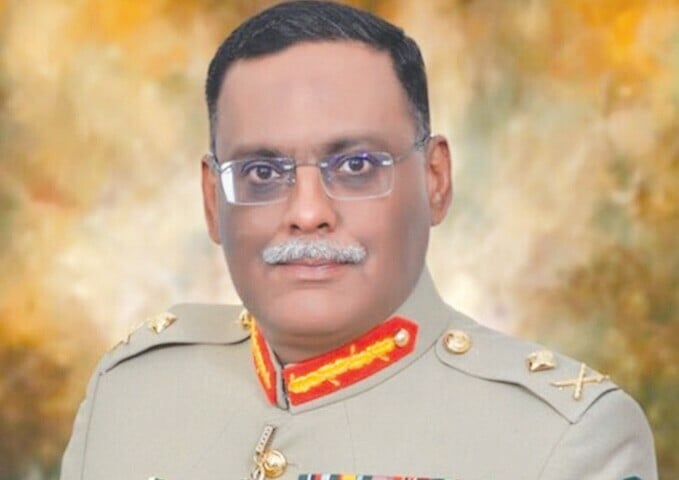General Sahir Shamshad Mirza, Chairman of the Joint Chiefs of Staff Committee (CJCSC) has called for the urgent resolution of the Kashmir dispute, warning that continued tensions with India threaten regional peace and security.
General Mirza, made the remarks while representing Pakistan at the 22nd Shangri-La Dialogue 2025 in Singapore, a key Asian security summit.
“The resolution of the Kashmir dispute in line with UN Security Council resolutions is essential for lasting peace in South Asia,” Gen. Mirza said, describing the conflict as the “root cause” of enduring hostility between Islamabad and New Delhi.
READ MORE: Pakistan’s victory inspires unity among Kashmiris
He stressed the need for active and effective dialogue frameworks—bilateral, regional, and global—to prevent conflicts rather than respond to them after escalation.
Mirza also criticised India’s recent actions regarding water flow management, accusing New Delhi of attempting to weaponise shared water resources.
“India’s use of water as a weapon of war is a clear violation of international law,” he said. “Any attempt to block or divert Pakistan’s waters will be considered an act of war, in accordance with the Pakistan National Security Committee’s policy.”
General Mirza reaffirmed that Pakistan is open to durable peace with India, but such a peace must be based on dignity, equality, and mutual respect.
He also expressed concern over the absence of reliable crisis management structures, noting that the failure to act early often prevents the international community from intervening before tensions spiral.
READ MORE: Modi trying to turn Kashmir into Gaza: Irfan Siddiqui
“The situation since the Pahalgam incident is endangering regional development. We need mutual restraint, recognition of red lines, and equilibrium to ensure durable peace,” he said.
Tensions between nuclear-armed Pakistan and India reached a boiling boint in the aftermath of the deadly April 22 Pahalgam attack in Indian Illegally Occupied Jammu and Kashmir (IIOJK). India blamed Pakistan-linked elements without offering any evidence while Islamabad rejected New Delhi’s claims and called for an independent probe.
India subseuqnetly undertook a series of hostile actions the next day on April 23, including suspending the 65-year-old Indus Waters Treaty (IWT), cancelling visas for Pakistani citizens, closing the Wagah-Attari border crossing, ordering the shutdown of the Pakistan High Commission in New Delhi, and reducing diplomatic staff at each other’s embassies.
Pakistan strongly rejected the accusation, calling it unsubstantiated, but took reciprocal measures through its National Security Committee (NSC). These included halting trade with India, closing Pakistani airspace to Indian aircraft, and other countersteps.
India’s later use of force was met with a calibrated military response under Operation Bunyanum Marsoos, which targeted Indian air assets, ammunition depots, and missile bases along the Line of Control and beyond. The operation formed part of a broader campaign, Marka-e-Haq, which ran from May 7 to May 10.
Last month, following four days of intense clashes between India and Pakistan, US President Donald Trump took to social media to announce that both countries had agreed to a “full and immediate ceasefire,” brokered by the United States. He had also offered to mediate a solution to the long-standing Kashmir dispute.
Mirza called on world powers to help restore a formal dialogue mechanism between Pakistan and India, warning that the current vacuum increases the risk of miscalculation and escalation.
Pakistan’s participation in the Shangri-La Dialogue comes at a time of heightened friction with India and growing concern over resource and territorial disputes across South Asia.
The country used the platform to reiterate its long-standing stance on Kashmir and to advocate for stronger diplomatic channels to address unresolved conflicts.
READ MORE: Trump to work with Pakistan, India to resolve Kashmir dispute
Earlier, Chief of Army Staff Field Marshal Asim Munir said Pakistan would never accept Indian hegemony in South Asia, expressing firm opposition to New Delhi’s regional posture and ongoing disputes.
In remarks shared by the military’s media wing, ISPR, the Chief of Army Staff conveyed a strong sense of resolve over what he described as India’s attempts to assert dominance. He reiterated Pakistan’s unwavering stance on Indian Illegally Occupied Jammu and Kashmir (IIOJK), and raised concerns about India’s approach to transboundary water sharing.

